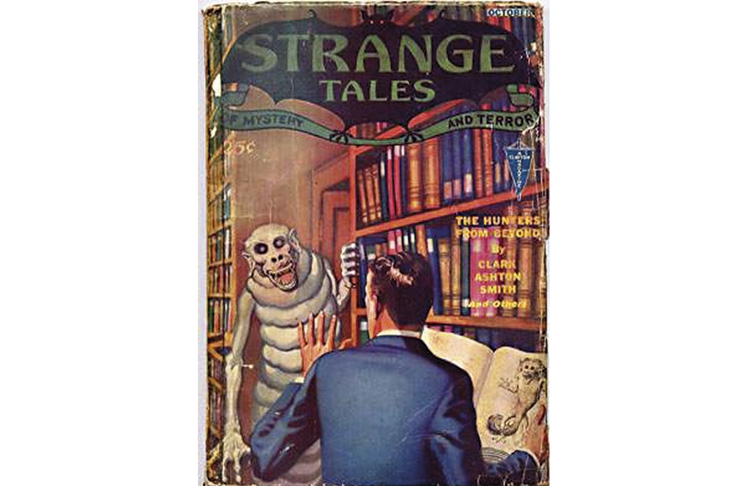‘Forget coronavirus,’ said my husband, ‘the word of the year is strange.’ The strange thing is he’s right.
This wasn’t determined by online polls or fixed by dictionaries. It emerged spontaneously and distinctly when the lockdowns got going. About lockdown I am still not quite happy. The word seems a little extreme for the episodes so far. But friends kept mentioning these strange times.
The word fitted in more than one sense. When politicians’ repetition of unprecedented had become tiresome, strange still applied in the sense of ‘unfamiliar; not known or experienced before’. It also described the feeling of life as ‘abnormal’. Both meanings have been present in English since Chaucer’s time.
The power of strange is not explained by its etymology. It derives, via Old French, from the Latin extraneus, ‘external, foreign’. But that does not supply its connotations.
Strange ranges from the unfamiliar to the unspeakable. Horatio calls the Ghost in Hamlet strange, and the Ghost tells Hamlet that his murder was ‘most foul, strange and unnatural’. Yet Desdemona finds Othello’s tales of his travels strange in a sense that makes him attractive. The alien is not always alienating.
A strange language certainly produces a feeling of distance. As Miles Smith said, quoting St Augustine, in the Translators’ Preface to the Authorised Version of the Bible: ‘A man had rather be with his dog than with a stranger (whose tongue is strange unto him).’ Yet strangers remain objects of fascination. The name stranger was given to household phenomena taken to presage the arrival of a stranger, such as the fluttering in the fire grate that Coleridge mentions in ‘Frost at Midnight’. Even a change for the better may turn you into a stranger. When your father lies in 30 feet of water, ‘Nothing of him that doth fade,/ But doth suffer a sea-change/ Into something rich and strange’.
This year, that rich-and-strangeness may have come in the consolations of quietness and clear birdsong. But in a world turned upside down, left giddy with strangeness, we have become distanced strangers fearful of a handshake or a kiss.






Comments